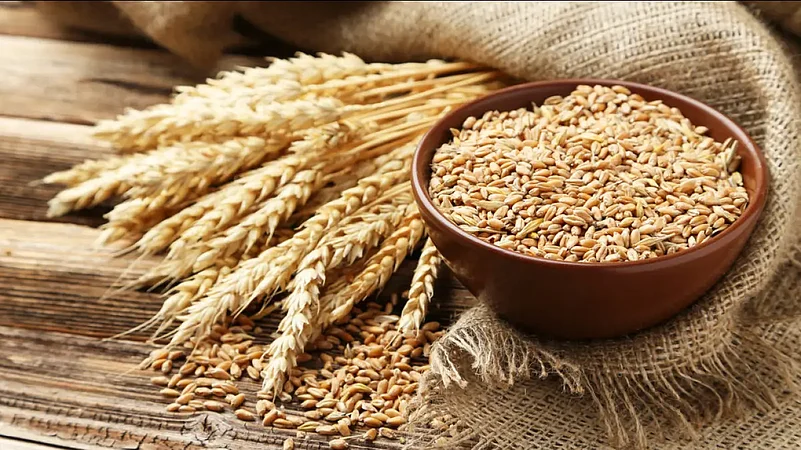Russia on Monday said it has stopped a deal that allows grain to be exported from Ukraine through the Black Sea, triggering concerns over global food security.?
Ukraine War: Russia Stops Deal That Allows Grain Export From Ukraine, Triggering Global Food Security Concerns
Ukraine is among the largest producers of grain in the world and several countries depend on imported Ukrainian grain. As grain imports from Ukraine are halted, food insecurity is feared in several developing societies.

Last year, the United Nations (UN) and Turkey had brokered a deal in which Ukrainian grain was allowed to be exported through the Black Sea. A similar deal was struck for the export of Russian agricultural produce and fertilisers amid Western sanctions.?
Kremlin spokesman Dmitry Peskov announced halting the deal in a conference call with reporters, adding that Russia will return to the deal after its demands are met.
“When the part of the Black Sea deal related to Russia is implemented, Russia will immediately return to the implementation of the deal,” Peskov said, as per AP.
Ukraine War last year sent oil and food prices spiralling and led to food shortages in developing countries that depend on imported grains from the war-torn region.?
Importance of Ukraine, Russia for food security
Ukraine produces around 10 per cent of the world's grain and is called the Bread Basket of Europe. Russia produces around 18 per cent of the world's grain. Around 26 countries in the world get more than half of their wheat supplies from these two countries, according to Arif Husain of the UN World Food Programme (WFP).
Forbes reported last year that wheat prices, which were already rising since mid-2020, soared by around 42 per cent in weeks following the beginning of the Russian invasion of Ukraine.
Besides wheat, Ukraine and Russia are major global suppliers of barley, sunflower oil, and other affordable food products that developing nations rely on. The countries are also major supplier of fertiliser that's critical to food production across the world.
"Russia has a 14 per cent market share of barley and Ukraine 12 per cent, Russia has a 26 per cent share of world’s sunflower oil supplies, whereas Ukraine is the world’s largest exporter with a whopping share of 37 per cent. Russia, along with Belarus, is also a major fertiliser supplier to the world," noted Outlook in a story last year.
Russia’s share in the world's fertiliser supply is around 17 per cent. Together, Russia and Belarus in 2021 exported 40 per cent of the world's potash, according to Reuters.?
"The biggest threat the food system is facing is the disruption of the fertiliser trade. Wheat will impact a few countries. The fertiliser issue can impact every farmer everywhere in the world and cause declines in the production of all food – not just wheat," The National Geographic quoted David Laborde of International Food Policy Research Institute as saying last year.
Food security risks after Russia's grain export ban
In recent months, the amount of food shipped and the number of ships leaving Ukraine had already plunged.?
The AP reported that Russia has complained that restrictions on shipping and insurance have hampered its exports of food and fertiliser —also critical to the global food chain— but cited analysts and export data to report that Russia has been shipping record amounts of wheat and its fertilisers also have been flowing.
Amid the Covid-19 pandemic that had already disrupted supply chains, the Ukraine War further added to the food security woes.
"The war in Ukraine sent food commodity prices surging to record highs last year and contributed to a global food crisis also tied to conflict, the lingering effects of the Covid-19 pandemic, droughts and other climate factors. High costs for grain needed for food staples in places like Egypt, Lebanon, and Nigeria exacerbated economic challenges and helped push millions more people into poverty or food insecurity," reported AP.
The Ukraine War-induced crisis has also combined with pre-existing hardships in several quarters.
"People in developing countries spend more of their money on meals. Poorer nations that depend on imported food priced in dollars also are spending more as their currencies weaken and they are forced to import more because of climate issues. Places like Somalia, Kenya, Morocco and Tunisia are struggling with drought. Prices for global food commodities like wheat and vegetable oil have fallen, but food was already expensive before the war in Ukraine and the relief hasn't trickled down to kitchen tables," reported AP.
“The Black Sea deal is absolutely critical for the food security of a number of countries” and its loss would compound the problems for those facing high debt levels and climate fallout, said Simon Evenett, professor of international trade and economic development at the University of St. Gallen in Switzerland to AP, noting that rising interest rates meant to target inflation as well as weakening currencies “are making it harder for many developing countries to finance purchases in dollars on the global markets".
While analysts don't expect more than a temporary bump to food commodity prices because places like Russia and Brazil have ratcheted up wheat and corn exports, food insecurity is growing, notes AP, adding that the UN Food and Agriculture Organisation (FAO) said this month that 45 countries need outside food assistance, with high local food prices “a driver of worrying levels of hunger” in those places.
-
Previous Story
Massive Brawl In Turkish Parliament, Blood On Floor As MPs Engage In Fistfight
- Next Story



















